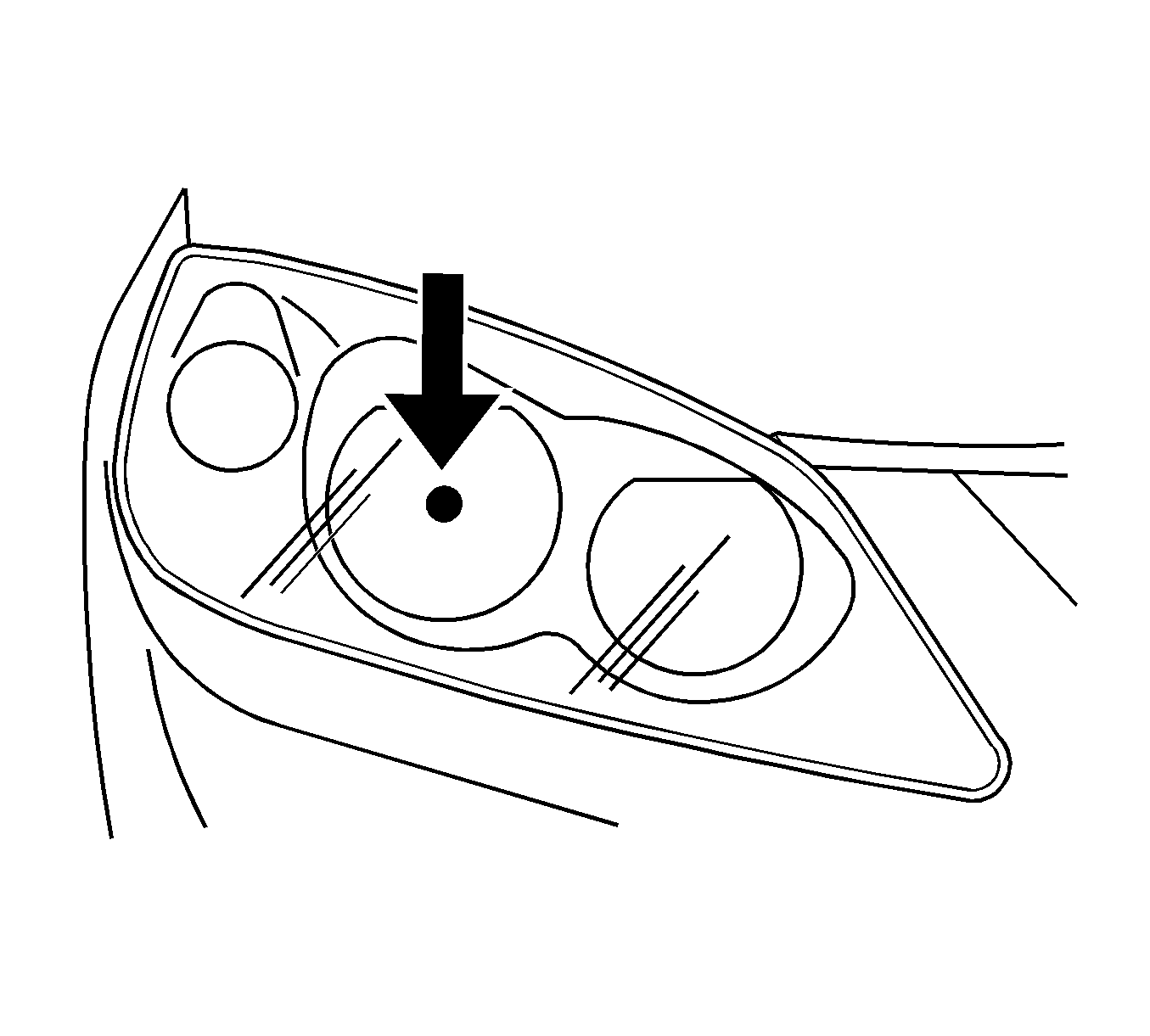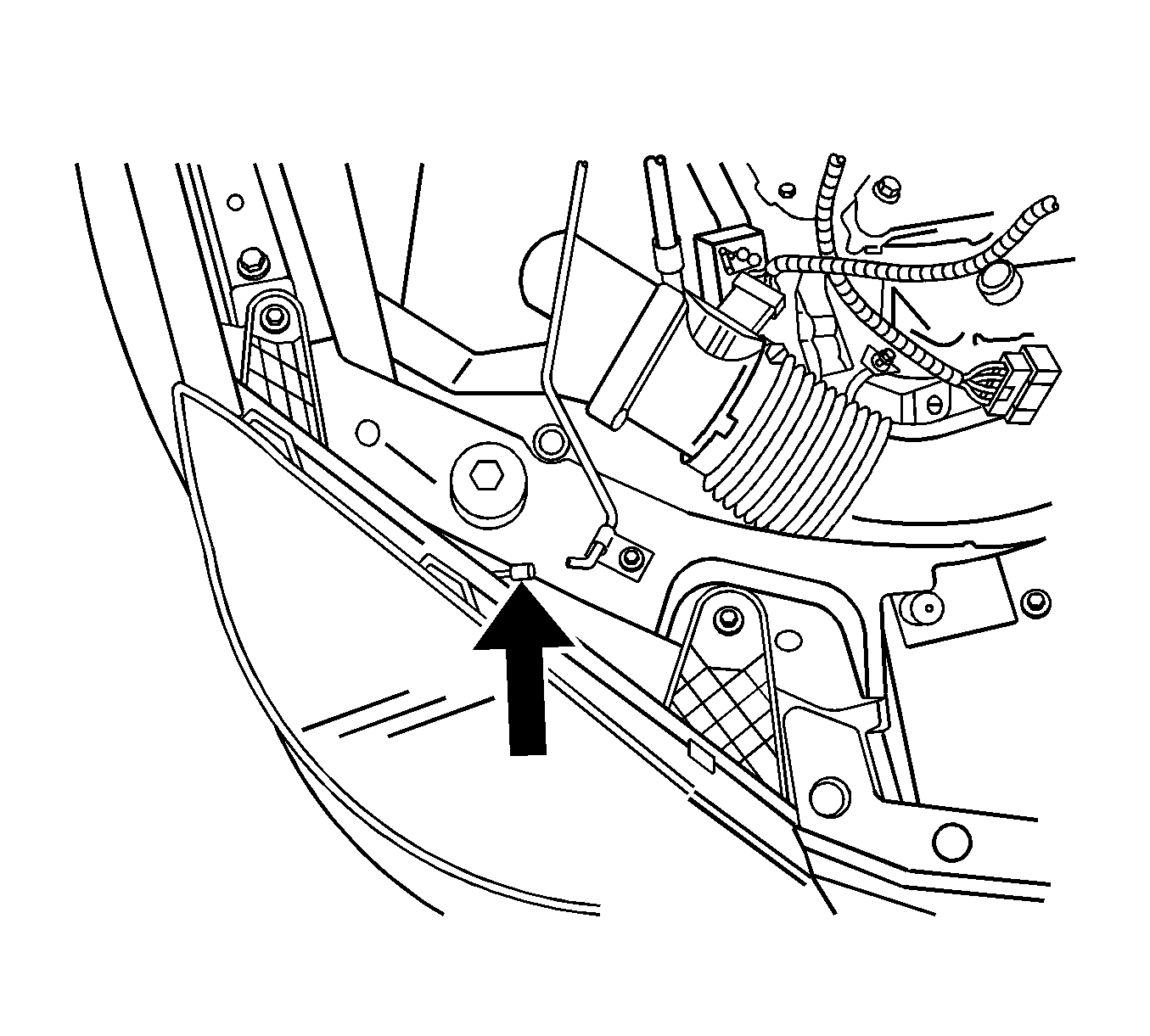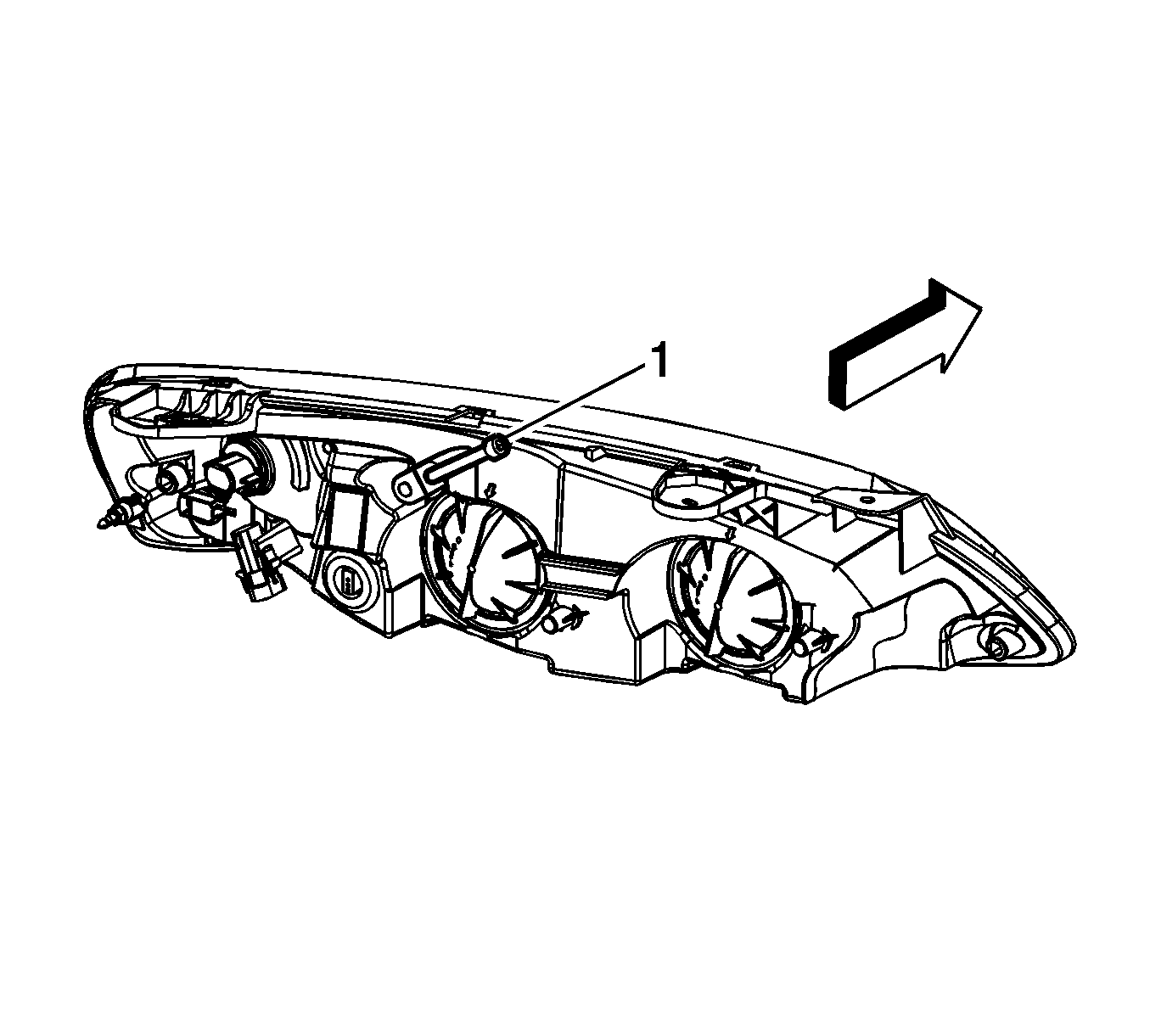The vehicle has a visual optical headlamp aiming system. The aim has been preset at the factory and should need no further adjustment.
However, If the vehicle is damaged in an accident, the headlamp aim may be affected and adjustment may be necessary.
If oncoming vehicles flash their high beams at you, this may also mean the vertical aim needs to be adjusted.
It is recommended that the vehicle is taken to your dealer for service if the headlamps need to be re-aimed. It is possible however, to re-aim the headlamps as described in the following procedure.
The vehicle should be properly prepared as follows:
| • | The vehicle should be placed so the headlamps are 25 ft. (7.6 m) from a light colored wall or other flat surface. |
| • | The vehicle must have all 4 tires on a perfectly level surface which is level all the way to the wall or other flat surface. |
| • | The vehicle should be placed so it is perpendicular to the wall or other flat surface. |
| • | The vehicle should not have any snow, ice, or mud on it. |
| • | The vehicle should be fully assembled and all other work stopped while headlamp aiming is being performed. |
| • | The vehicle should be normally loaded with a full tank of fuel and one person or 160 lbs (75 kg) on the driver's seat. |
| • | Tires should be properly inflated. |
| • | The spare tire is in its original location in the vehicle. |
Headlamp aiming is done with the vehicle's low-beam headlamps. The high-beam headlamps will be correctly aimed if the low beams are aimed properly.
To adjust the vertical aim, do the following:
- Open the hood.
- Find the aim dot on the lens of the low-beam lamp.
- Measure the distance from the ground to the aim dot on the low-beam headlamp. Record the distance.
- At the wall or other flat surface, measure from the ground upward the recorded distance from step 3 and mark it.
- Draw or tape a horizontal line the width of the vehicle at the wall or other flat surface where it was marked in step 4.
- Turn on the low-beam headlamps and place a piece of cardboard or equivalent in front of the headlamp not being aimed. This should allow only the beam of light from the headlamp being aimed to be seen on the flat surface.
- Locate the vertical headlamp aiming screws, which are under the hood, on top of each headlamp assembly.
- Turn the vertical aiming screw (1) until the headlamp beam is aimed below the horizontal tape line. The top edge of the beam cut-off should be positioned 2 inches (5 cm) below the bottom edge of the horizontal tape line.
- Repeat steps 7 and 8 for the opposite headlamp.

Caution: Do not cover a headlamp to improve beam cut-off when aiming. Covering a headlamp may cause excessive heat build-up which may cause damage to the headlamp.


The adjustment screws can be turned with a 6 mm external hex.
